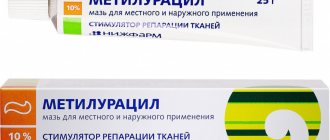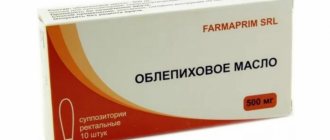A balanced diet and healthy intestinal flora guarantee a person good immunity and excellent health. But as a result of many negative factors (diarrhea, use of antibiotics, poor environment and others), the number of probiotics in the intestines decreases sharply and then the doctor prescribes yogurt in capsules. The instructions for this product classify it as a group of antidiarrheal microbial pharmaceuticals.
Its composition is a complex of active lactobacilli. They allow you to quickly populate the intestines with friendly microflora, protecting against pathological organisms that attack it. The active components of the capsules do not lose their activity during passage through the gastrointestinal tract, but only improve their properties due to growth.
Pharmacological action of Yogurt
Due to the fact that lactic acid bacteria produce lactic, acetic, propylene acids, lactocin and lysozyme, Yogurt is active against staphylococci, Proteus, E. coli, and Candida fungi. In addition, lactobacilli are able to lower the pH of the intestinal contents, thereby preventing the proliferation of opportunistic and pathogenic flora and the penetration of bacterial, food allergens and endotoxins from the intestines into the blood.
The bacteria included in the drug retain their viability, passing through the esophagus, stomach, duodenum, and continue to grow in a medium that contains 1% bile. Thanks to this, bacteria enter the small and large intestines unchanged.
How much does the product cost?
Cost formation is influenced by factors such as transportation costs, markup for each pharmacy, and purchase cost. To clarify information about the cost, you need to contact the pharmacy.
Russia
The cost of this product is 125 rubles.
Price in Ukraine
The price of medicine ranges from 45 to 59 hryvnia.
Video on the topic: Probiotics: how yoghurts and capsules with beneficial bacteria actually work and don’t work
Indications for use of Yogurt
According to the instructions, Yogurt in capsules is used for preventive and therapeutic purposes for:
- chronic and acute gastroenteritis;
- generalized and local dysbacteriosis;
- complex treatment of allergic diseases (food allergies and atopic dermatitis).
Yogurt tablets are also recommended for patients who have contraindications to the consumption of fermented milk products.
Yogurt in capsules is used to prevent dysbiosis during courses of antibiotic, chemotherapy and radiation therapy.
How to store the drug?
The drug should be placed in a room where the temperature ranges from 13 to 25 degrees. Under no circumstances should children or their pets have access to this product.
The medicine can be used for no more than three years.
Dysbacteriosis is a condition in which the active development of pathogenic microflora occurs.
Directions for use and dosage
Yogurt in capsules according to the instructions is prescribed:
- Children from 3 months to one year: 0.5-1 capsule per day with meals. In this case, it is necessary to open the capsule and mix the powder contained in it with a small amount of liquid or food;
- Children aged one to three years: 1-2 capsules per day with meals;
- Children aged three to twelve years: 1 capsule 3 times a day with meals;
- Adults and adolescents over twelve years of age: 1-2 capsules 3 times a day with meals.
As a rule, the course of taking the drug is 25-30 days. If necessary, the course is repeated.
For preventive purposes, Yogurt in capsules is prescribed:
- Children under twelve years of age – half a capsule per day;
- Adolescents over twelve years of age and adults – 1 capsule per day.
In what cases can adverse reactions occur?
During the period of taking the drug, no adverse reactions were identified, however, doctors do not exclude the possibility of its occurrence, which can manifest itself with symptoms such as:
- Itching, peeling, redness of the skin;
- Pain in the back, stomach, head.
In isolated cases, the patient may experience sudden changes in mood, as well as hallucinations.
Overdose
There have been no reports of overdose, however, doctors still do not exclude the possibility that it may occur. If you experience any symptoms after taking the drug in large quantities, you urgently need to rinse your stomach. If the symptoms do not go away within a few hours, then you should take the medicine based on the symptoms that appear in the patient.
In what cases is it contraindicated?
It is not recommended to take the medicine if you are allergic to any of the components included in the composition.
Use during pregnancy
Your doctor may prescribe yogurt capsules during pregnancy, which can be taken along with antibiotics prescribed in emergency situations.
The use of the drug Yogurt capsules during pregnancy not only becomes possible, but doctors even strongly recommend taking it. Yogurt improves the well-being of a pregnant woman during toxicosis, relieves constipation and bloating.
There is evidence that beneficial microorganisms in Yogurt several times reduce the risk of dermatitis or eczema in a newborn baby.
However, before you start taking it, you should consult your doctor.
Yogurt capsule
Instructions for medical use of the drug
Description of pharmacological action
Lactic acid bacteria of the Yogurt preparation are part of the normal human intestinal flora and play an important role in ensuring colonization resistance, immunostimulating, vitamin-forming, detoxification and digestive functions of the body. The antimicrobial activity of lactic acid bacteria is manifested against staphylococci, Proteus, enteropathogenic Escherichia coli and fungi of the genus Candida and is associated with their ability to produce lactic acid, lactocins, hydrogen peroxide, acetic and propylene acids, lysozyme. Lactic acid bacteria reduce the pH of the intestinal contents, preventing the growth and reproduction of pathogenic and conditionally pathogenic microflora. Lactobacilli are a barrier to the penetration of sensitizing substances (endotoxins, bacterial and food allergens) from the intestines into the blood. The viability of the bacteria included in the Yogurt preparation is not impaired by cooling through the esophagus, stomach and duodenum. When incubated in a solution of gastric juice at 37 °C and pH 3 for three hours, they remained completely viable. In addition, they continued to grow in a nutrient medium containing 1% bile. All this ensures the stable passage of bacteria that are part of the Yogurt preparation to the place of their action - the small and large intestines. The colonization ability of the culture of the drug Yogurt is enhanced by combination with Streptococcus thermophilus.
Indications for use
— Prevention and treatment of acute and chronic gastroenteritis in children and adults. — Treatment of dysbacteriosis, both local and generalized. — Prevention of dysbiosis during and after taking antibiotics, chemotherapy, radiation therapy, etc. — In the complex therapy of allergic diseases (atopic dermatitis, food allergies). — Yogurt is recommended for patients who do not consume fermented milk products.
Release form
1 capsule contains: - 2 billion or 4 billion active cells (CFU): Lactobacillus acidophilus, Lactobacillus rhamnosus, Streptococcus thermophilus, Lactobacillus delbrueckii subsp. bulgaricus; — excipients: lactose, magnesium stearate, whey powder, ascorbic acid. Release form. Capsules. Yogurt with 2 billion active cells: capsules No. 30 and No. 75 in polyethylene bottles, capsules No. 15 in blisters, 1 blister in a cardboard box. Yogurt with 4 billion active cells: capsules No. 30 in polyethylene bottles.
Contraindications for use
Contraindicated in case of hypersensitivity to the active and auxiliary ingredients of the drug or gelatin capsule.
Side effects
No adverse reactions were identified.
Directions for use and doses
The drug is taken orally during meals, preferably simultaneously with food. For a child, you can open the capsule into two halves, the contents of the capsule or, if necessary, pour out about half of the contents and mix with food or drink intended for the child. Yogurt, 2 billion active cells For treatment, the drug is prescribed: - children from 3 months to 1 year: 0.5-1 capsule per day; - children from 1 year to 3 years: 1-2 capsules per day; - children from 3 years to 12 years: 1 capsule 3 times a day; — adults and children over 12 years of age: 1-2 capsules 3 times a day. The course of treatment is 25-30 days. If necessary, the course can be repeated. As a preventive measure, the drug is prescribed to adults and adolescents over 12 years of age, 1 capsule per day. Children under 12 years old - 0.5 capsules per day. Course duration is 25-30 days. Yogurt, 4 billion active cells For treatment, the drug is prescribed: - children from 1 year to 3 years: 0.5-1 capsule per day; - children from 3 years to 12 years: 1 capsule 1-2 times a day; — adults and children over 12 years of age: 1 capsule 3 times a day. The course of treatment is 25-30 days. If necessary, the course can be repeated. As a preventive measure, the drug is prescribed to children from 3 to 12 years old: 0.5 capsules per day, adults and adolescents over 12 years old, 1 capsule per day. Course duration is 25-30 days.
Overdose
Overdose is impossible.
Interactions with other drugs
The drug is prescribed in complex therapy together with antibiotics, sulfonamides, metronidazole and other antibacterial drugs.
Special instructions for use
The drug is taken with meals. Children or adults who are unable to swallow the capsule are advised to open the capsule and mix the contents with a small amount of food or liquid.
Storage conditions
Store at a temperature of 4 to 8 ºC out of the reach of children.
Best before date
36 months
ATX classification:
A Digestive tract and metabolism
A07 Antidiarrheal, intestinal anti-inflammatory and antimicrobial drugs
A07F Antidiarrheal drugs of biological origin, regulating the balance of intestinal microflora
A07FA Antidiarrheal drugs of biological origin, regulating the balance of intestinal microflora
A07FA51 Preparations containing microorganisms that produce lactic acid in combination with other drugs
Contraindications
Who can be harmed by Canadian yoghurt capsules? The instructions prohibit or limit the use of this drug for people with hypersensitivity to the active or auxiliary ingredients of the product, as well as to the gelatin shell of the capsule. No side effects have been identified after taking yogurt; an overdose of probiotics, according to scientists, is impossible. But this does not mean that this product can be taken independently, without appropriate medical indications. Harm from probiotics occurs with uncontrolled long-term use and then sudden cessation. An abrupt interruption in the entry of the usual amount of bacteria into the intestinal microflora can lead to the activation of pathogenic organisms. Precise adherence to the dosage and permissible duration of use of capsules with lactobacilli will help to avoid this phenomenon.
What analogues can replace the product?
Among the analogues, we can highlight such drugs as: Laktovit Forte, Biolact, Acidolak, Bifidumbacterin, Multiprobiotic, Pribiovit, Pribiolag, A-Bakterin, Biosporin-Biopharma, Bifikol, Yogurt Roselle, Fermalak, Colibacterin-Biopharma, Symbioflor, Mutaflor, Laktomun, Lacidofil , Latium, Linex Baby, Mitserol-Ratiopharm, Normagut,
Enterol, Probilak, Spasmolac, Subalin, Hilak, Hilak Forte, Enterozermina, Apibak, Bifi-Form, Primadophilus, Linex Forte, Preklaks, Laktogin, Ecofemin, Bioflor, Acidolak Junior, Bificol, Simbiform, Bifidophilus Flora, Baktistatin, Biosporin Forte, Laktomun , Biosporin, Liveo Children.
Cost, storage conditions, shelf life and interaction with various medications
How much does Canadian yogurt capsules cost? The instruction (the price in which is indicated depending on the number of colony-forming units - CFU) from the company gives the addresses of pharmacies in Ukraine, but for domestic buyers it can be ordered on the Internet or found in medical institutions selling medicines. For example, a package of 30 capsules of Canadian yogurt will cost approximately 350 rubles, and a package of 75 capsules will cost 600 rubles.
It is better to store them in the refrigerator at a low temperature (plus 4-8 degrees), avoiding contact of the pills with children. The shelf life of the drug is limited to 36 months. This effective remedy for dysbacteriosis can be easily prescribed by a doctor simultaneously with sulfonamides or metronidazole, certain antibiotics, except for cephalosporin and penicillin drugs.
Yogurt "Roselle" in capsules
Instructions for use from the manufacturer Institut Rosell Inc. (Canada) is completely identical to the annotation for the previous version of Canadian yogurt, since YOGURT ROZELL is a new brand of the same probiotic. Today, it is increasingly possible to find a highly effective medicine in a plastic bottle decorated in lilac (Roselle) rather than yellow. Its cost is equivalent to the amounts that buyers paid for the previous version of the drug. It is also safe for pregnant women and children, effective in treating dysbacteriosis and easy to use.
After antibiotics
In their second study, the researchers looked at what happens in the gut when a person takes probiotics after a course of antibiotics. Twenty-one healthy volunteers were treated with broad-spectrum antibiotics (ciprofloxacin and metronidazole) for one week. They then either took the same supplement as in the first study twice daily for 4 weeks, an autologous fecal microbiota graft representing a sample of the subjects' own pre-antibiotic microbiota taken via upper gastrointestinal endoscopy, or nothing. and constituted the control group.
This time, none of the subjects taking probiotics were resistant to colonization. Antibiotics killed most of the natural microbiome, allowing exogenous strains to spread. However, this came at a cost: natural gut bacteria were restored over a longer period in the probiotic group compared to the control group. The return to baseline of host intestinal cell gene expression was also suppressed in the probiotic group during the six-month follow-up period.
Alexander Khoruts, a gastroenterologist and director of the gut microbiota medical program at the University of Minnesota, who was not involved in the study, said he was surprised that the probiotics showed any significant effect at all, even such a small one. It.
Khoruts primarily treats patients with difficult-to-treat C. difficile infections, and nearly all of his patients say they took probiotics. While he's not arguing with them, other than encouraging them to eat more fermentable foods, Khoruts says the evidence supporting the benefits of probiotics is weaker than many people think. “In my literature review (although many may disagree), I did not find any convincing evidence , at least for C. difficile infection, of any beneficial effect of taking probiotics ,” the doctor states.
One significant limitation is the apparent lack of randomized trials providing data on the safety of probiotics, a topic addressed by a systematic review presented in the Annals of Internal Medicine.
Despite the results of the Weizmann Institute of Science study, it is still unknown whether taking probiotics during or after a course of antibiotics actually slows down the restoration of the natural microbiome, and whether such disturbances can cause problems. The composition of the probiotics varies and, according to Knight, the researchers administered an extremely high dose. In addition, the study design did not include analysis of clinical outcomes.
However, long-term impairment after a course of antibiotics is associated with a number of health problems, including infections, obesity, allergies and chronic inflammation, says Elinav. In his opinion, long-term impairment caused by the probiotics his team was studying " could potentially lead to long-term side effects in individuals consuming them ."
Knight notes that the study was conducted on healthy volunteers who were administered antibiotics for research purposes only. In reality, people take antibiotics when they suffer from some disease. Will probiotics slow down the restoration of natural intestinal microflora in this case?
“This study does not address this issue at all,” Knight says. “It discusses the administration of antibiotics to healthy subjects, whose situation may be quite different from the clinical patient population.”
Khoruts believes that the harm from taking most probiotics is likely to be minimal. However, for him “this is quite enough to stop prescribing them and think about what to believe. "I believe the prescribing physician should have a healthy degree of skepticism regarding claims made regarding such products."
Users' attitude towards yoghurt capsules
Buyers of this drug have a very positive attitude towards it. Opinions are often published on forums that these probiotics really help in many cases. They eliminate digestive problems in young children and adults and reduce gas formation in the intestines. Within a week, many consumers of yoghurt capsules note an improvement in their well-being. Especially many laudatory reviews about the drug “Yoghurt” in capsules (the instructions, the price of which corresponds to the expectations of many buyers) are left by young mothers who are faced with dysbiosis in their babies. It is in newborns and young children that disorders of the intestinal microflora most often occur due to its immaturity. The probiotic helps normalize and strengthen it.
Grateful comments are also written by people with lactose intolerance, for whom the Canadian product replaces enzymes missing in the body. Occasionally, beginners have doubts about whether it is worth buying pills with yogurt if they can be replaced with fermented milk products. But experts advise you to listen to your doctor’s recommendations, since if it is necessary to restore the intestinal microflora, consuming fermented milk products with preservatives and sugar is not enough. Maintaining the dosage and providing a therapeutic effect during a course of treatment is possible only with the help of a Canadian medication, which is confirmed by many grateful reviews.
Similar drugs:
- Lactobacterin siccum dry (Lactobacterin siccum) Lyophilisate for the preparation of solution for oral administration
- Linex Capsule
- Bifidumbacterin Capsule
- Laktovit Forte Powder for the preparation of suspension for oral administration
- Bifiform Capsule
- Bactisubtil Capsule
- Acipol Capsule
- Bifidumbacterin Vaginal suppositories
- Probifor Capsule
- Laktovit Forte Capsule
** The Drug Directory is intended for informational purposes only. For more complete information, please refer to the manufacturer's instructions. Do not self-medicate; Before starting to use the drug Yogurt, you should consult a doctor. EUROLAB is not responsible for the consequences caused by the use of information posted on the portal. Any information on the site does not replace medical advice and cannot serve as a guarantee of the positive effect of the drug.
Are you interested in the drug Yogurt? Do you want to know more detailed information or do you need a doctor's examination? Or do you need an inspection? You can make an appointment with a doctor - the Euro lab is always at your service! The best doctors will examine you, advise you, provide the necessary assistance and make a diagnosis. You can also call a doctor at home . Euro lab clinic is open for you around the clock.
** Attention! The information presented in this medication guide is intended for medical professionals and should not be used as a basis for self-medication. The description of the drug Yogurt is provided for informational purposes and is not intended for prescribing treatment without the participation of a doctor. Patients need to consult a specialist!
If you are interested in any other drugs and medications, their descriptions and instructions for use, information about the composition and form of release, indications for use and side effects, methods of use, prices and reviews of drugs, or you have any other questions and suggestions - write to us, we will definitely try to help you.
Details about the composition of the drug and release form
Many representatives of the normal human intestinal flora are contained in the Canadian preparation “Yoghurt” (capsules). The instructions describe the composition of the active components as a composition of acidophilic and bifidophilic lactobacilli. In each capsule of such active cells, depending on the dosage, there are two or four billion.
Yogurt with a two-billionth concentration of CFU (active cells) is produced in capsules of 30 and 75 pieces, packed in polyethylene bottles, or 15 pieces in blisters, in each cardboard box. Yogurt with a four-billionth concentration is packaged by the manufacturer (Canadian company Pharmascience Laboratories, Inc.) in 30 capsules in branded polyethylene bottles. Of the excipients in each capsule, the following are added: lactose and whey powder, magnesium stearate and ascorbic acid.











